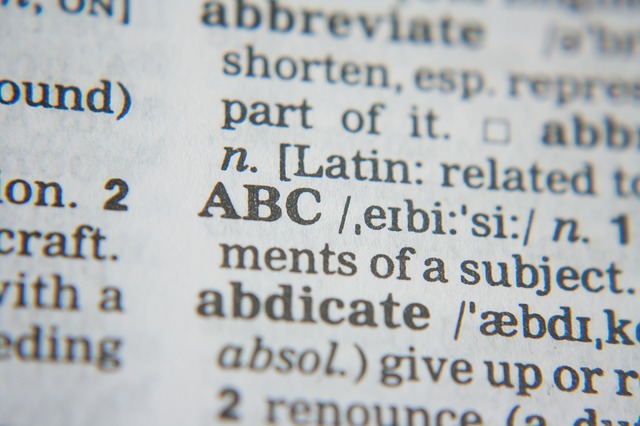
Studying diligently is important for performing well on GRE Verbal. But is rote memorization of tough vocab really the only way to study for it? And more importantly, are there any study methods out there for GRE vocab that are, well, actually fun?
Follow along as I introduce you to the four best GRE vocabulary games currently available. We’ll also take an in-depth look at what qualities to look for in a vocab game and how you can integrate these games effectively into your test prep.
GRE Vocabulary Games: An Overview
In recent years, and particularly with the rise of smart phones, more and more companies are starting to “gamify” everyday tasks, from exercising and eating to shopping and studying. The purpose? To ultimately transform mundane activities into fun and exciting ones — ideally, with tons of replay value. These types of games are meant to help you enjoy the activity you’re engaging in, even if it’s something traditionally tedious, such as studying for the GRE.
Enter GRE prep games. These test-prep games, especially apps, have been steadily gaining popularity among test takers. And the trend makes sense, too. In contrast with those taking the SAT or ACT, most of those studying for the GRE (and therefore applying to grad school) lead overall busy lives, as undergrads, grad students, or full-time workers. Because studying for the GRE can be difficult, if not impossible, to squeeze into an already-packed schedule, it’s no surprise companies are attempting to capitalize on GRE games.
But who makes GRE games and apps, anyway? And what about specifically for the Verbal section? In reality, a variety of entities and websites offer vocab-based games and challenges geared toward the GRE, many of them at no cost to users. Even famous test prep companies, such as The Princeton Review, are beginning to explore gamification.
As you can see, our options for studying GRE vocab are continually expanding. But the major question you need to ask yourself is this: can GRE vocab games truly teach you everything you need to know to do well on test day?
Quick side note: we've created the world's leading online GRE prep program that adapts to you and your strengths and weaknesses. Not sure what to study? Confused by how to improve your score? We give you minute by minute guide.
You don't NEED a prep program to get a great GRE score. But we believe PrepScholar is the best GRE prep program available right now, especially if you find it hard to organize your study schedule and don't know what to study.
Click here to learn how you can improve your GRE score by 7 points, guaranteed.

Why Most GRE Vocabulary Games Aren’t Enough
The truth is, GRE vocab games lack many of the benefits and features of traditional study methods. As a result, vocab games should never be your sole resource for GRE vocab and are best used as supplements.
What are the downsides? To start, many vocab games focus little on actual GRE vocab. Instead, they just offer a motley of “hard” English vocab. What you should actually be studying is high-frequency vocab, or terms you’re most likely to encounter on Verbal. Some games also fail to elucidate the lesser-known tertiary meanings of “simple” vocab words, which is a common component of Verbal.
Additionally, many vocab games lack a logical or relevant setup. Always avoid games in which you use letters to form a vocab word based on clues. These games are nothing like the GRE, and they don’t really teach you much except how to spell difficult words (which you won’t be tested on, anyway). Some games assume you’ll automatically know a word based on a given definition without using any letters or hints. But on Verbal, you’re always given multiple choice and a list of words to choose from, so practicing in this way — as if taking a memory test — isn’t at all helpful or even practical.
Lastly, GRE vocab games often lack context. Many games only provide you with a brief definition of a word before quizzing you on its definition. But without example sentences or passages demonstrating usage, the quiz is nothing like Verbal. On the GRE, you’ll be required to interpret passages and complicated sentences. And you can’t do so effectively without knowing how specific words function and relate to other words as well as what they convey about the overall text.

So if vocab games aren’t enough, what’s the best way to study for Verbal? I strongly recommend using a combination of highly rated GRE books and official practice tests.
Unfortunately, ETS doesn’t offer an official vocab list, but all vocab used in ETS materials is fair game. Try practicing with the Verbal questions in The Official Guide to the GRE General Test to get a feel for possible vocab.
Other major test-prep companies, including Barron’s, Kaplan, Manhattan Prep, and The Princeton Review, offer high-frequency vocab lists, usually as separate sections in their GRE prep books. For a considerably robust vocab list of more than 3,000 words, check out Barron’s GRE. For a more condensed list, take a look at our convenient compilation of 357 high-frequency vocab words. Although none of these resources are particularly game-like, all of their vocab words are the closest to what you’ll see on the GRE.
What Makes a Good GRE Vocabulary Game?
How can you tell if a GRE game is good enough to play? A good vocab game will offer most or all of the following features.
#1: Realistic Vocab
A vocab game isn’t worth spending time on if it doesn’t contain and define actual vocab you’ll see on the GRE. Most of a game’s terms should be high-frequency GRE vocab words and not just a random assortment of difficult or “rare” English vocab.
To check if a game is using high-frequency vocab, compare its choices to that of high-frequency vocab lists in popular test-prep books. Additionally, it’s a good idea to opt for vocab games created by well-known GRE-prep companies. That way, you’re almost always guaranteed a solid assortment of GRE vocab.

#2: A Fun and Engaging Atmosphere
Vocab games are never going to be as fun as Monopoly or Life. Nevertheless, they should still engage and excite you, way more than if you were to simply buckle down and begin memorizing a list of terms. A good game should feel like a breath of fresh air and break up your traditional vocab routine in a way that makes you actually look forward to playing it.
#3: Accuracy
Obviously, if you study incorrect definitions, you’re not going to do well on the GRE! Therefore, always make sure your GRE vocab game is free of errors. A good vocab game will offer an accurate definition for each word in addition to correct spelling. Better games will also offer GRE-like example sentences or passages illustrating how to use the words appropriately.

The 4 Best GRE Vocabulary Games
Ready to take the dive and study with GRE games? Here are our top four picks.
GRE Vocab Challenge
Created by The Princeton Review, GRE Vocab Challenge is a handy iPhone app that tests users on high-frequency vocab through four separate challenges: a definitions challenge, an antonyms challenge, a synonyms challenge, and a connotations challenge. After completing a challenge, you can review answers and definitions of words. Fortunately, the definitions are extremely elaborate, providing parts of speech, pronunciation, connotations, synonyms, antonyms, and even example sentences.
The connotations section is helpful for Text Completion questions on the GRE, as you are often required to determine the tone of a sentence. Likewise, the synonyms challenge is an excellent resource for Sentence Equivalence practice, for which you must select two words with similar meanings.
There are a few cons, however. The 10-second timer for each question doesn’t really give you enough time to adequately process the word choices, especially if you’re not familiar with their meanings.
Another pitfall is the lack of content. The free version only contains 20 terms, and you have to pay $1.99 for 236 additional words. Moreover, several customers have complained about glitches, crashes, and broken features, with some claiming they never received additional vocab words after paying for an upgrade.
Quizlet
Quizlet is a free gaming website offering tons of user-submitted GRE vocab decks.
When searching for a deck, make sure the deck you choose has a lot of words (300+ is ideal) you’re likely to encounter on the GRE. Decks based on books by test-prep companies usually offer the highest-quality compilations of vocab words. For example, if you search for “GRE Kaplan,” you should be able to find a decent number of decks based on Kaplan’s high-frequency vocab lists.
Here’s how to use the website effectively. Start by skimming the vocab list you choose and practice with the flashcard feature. Then, move on to a game called Match. In this game, your goal is to match vocab words with their definitions. You can take as long as you want, but the faster you complete it, the higher your score will be.
You can also unlock badges as you earn points, giving you even more of an incentive to perform well. The game’s only drawback is in how the words and definitions often overlap, making the text difficult to read and annoying to have to shuffle around.
There’s also another game called Gravity, but I strongly suggest avoiding this one. One verison of the game expects you to have memorized exact definitions of words, which isn’t practical or relevant to the GRE. On the test, you’ll always be given vocab words and are not required to write out any definitions.

Want to improve your GRE score by 7 points? We have the industry's leading GRE prep program. Built by world-class instructors with 99th percentile GRE scores, the program learns your strengths and weaknesses through machine learning data science, then customizes your prep program to you so you get the most effective prep possible.
Try our 5-day full access trial for free:
Cram
Similar to Quizlet, Cram is a free website that allows users to choose a (GRE) vocab deck, practice it, and play games with it. The two games available are Jewels of Wisdom (a matching game) and Stellar Speller (a space-based spelling game).
Jewels of Wisdom is a fun and interactive game in which you match 15 “jewels” (vocab words) to their “inscriptions” (definitions). The quicker you finish the game, the higher your score will be. If you match an incorrect definition to a word, a lock will appear over the word and bar you from matching it for one turn.
Any jewels you’ve guessed incorrectly are permanently black and will not give you any points, even if you eventually match to the appropriate definition, so it’s important to only make a match if you’re confident. In other words, the fewer mistakes you make, the more points you’ll accumulate.
Stellar Speller, on the other hand, isn’t really worth your time, unless you’re extremely familiar with the words in your deck. In this game, you control a spaceship and shoot letters on asteroids to spell one of your vocab words hinted at by a given definition. Though engaging, this type of practice isn’t GRE-esque at all, as you’re not required to spell any vocab words on the actual test.
Memrise
Often lauded by the language-learning community, Memrise is a free study website offering flashcards and interactive practice.
Start by making a free account and then search for GRE vocab decks. If you’re having trouble finding one, narrow your search to the “Standardized Test” section. Most Memrise decks borrow their material from major test-prep books, so you’re usually guaranteed a quality variety of high-frequency GRE vocab.
Studying on Memrise isn’t as “game-like” as some of the other options on this list, but it offers one of the more effective strategies for learning. (Its style is similar to that of Duolingo‘s language-learning system.) Once you’ve chosen a deck, you can then test yourself with a learning session.
Practice sessions start off easy and progress in difficulty, eventually asking you to spell vocab words and match them to their definitions. If you answer a question incorrectly, the system forces you to review the word more until you get it right. You’re also timed, and the faster and more accurately you answer questions, the larger your “flower” grows. Like other vocab games, you earn points for studying (competitive users will enjoy the leaderboard feature).
Major cons include a lack of example sentences and a timer that can ultimately make you more anxious than excited about practicing vocab. Ultimately, Memrise is OK for learning new vocab, but it’s a better tool for drilling GRE vocab you’re already at least somewhat familiar with.

How to Use GRE Vocabulary Games in Your Test Prep
While vocab games shouldn’t account for the bulk of your GRE studies, they’re still helpful supplements you can use in a variety of ways. Here are some of the best methods for integrating vocab games into your GRE test prep.
#1: Alongside Flashcards
For many of the above games, you can’t really play them (and play them well) if you’re totally new to the sets of words being thrown at you. This is why it’s a good idea to first familiarize yourself with GRE vocab using flashcards. Flashcards allow you to customize your study sessions and memorize the meanings of words fast and effectively.
A couple of the games I mentioned come with built-in flashcard features. Always take advantage of these, primarily because they will contain the same vocab words in their accompanying games. If your game doesn’t offer a flashcard feature, or it does but it’s subpar, feel free to explore other resources for higher-quality flashcards. For example, you can download our free set of 357 GRE vocab flashcards. Our deck contains tons of high-frequency vocab words.
You can also download user-created GRE flashcards or make your own decks using a free desktop software called Anki. Another idea is to make a traditional set of flashcards using note cards. Whatever route you choose, be sure to write each vocab word (spelled correctly) on the front, and its part of speech and definition on the back. If possible, include a sample sentence or two, as well.
For more info on how to study for GRE Verbal using flashcards, read our in-depth guide.

#2: As Quick Refreshers
If you don’t have a lot of time to devote to studying one day, or you’ve already studied and are looking for a quick refresher to keep your mind sharp before going to bed, opt for a vocab game. Games are especially helpful if you’re struggling to carve out time for dedicated study sessions. Just keep in mind vocab games should never replace your primary study methods (e.g., flashcards and prep books).
#3: As Warm-Ups and Breaks
GRE vocab games are a great way to warm up your brain in preparation for a lengthy study session. Playing vocab games supplies you with a quick overview of the words you need to concentrate on and is a fun, low-stress way to get you in the mood for studying.
You can also use vocab games during a quick break from a particularly intense study session as a way to keep your mind active, alert, and focused.

What to Remember About GRE Vocabulary Games
Although GRE vocab games offer a fun and interactive outlet for testing your vocab knowledge, it’s best to use them as supplements to your primary study methods. Those looking for a good vocab game to play should make sure it offers the following features:
- Realistic GRE vocab
- A fun and engaging atmosphere
- Accurate words and definitions
Some of our top picks for GRE vocab games are:
- GRE Vocab Challenge: an iPhone app created by The Princeton Review and offering four unique word-based challenges.
- Quizlet: a free gaming website containing numerous GRE flashcards and a simplistic matching game.
- Cram: a free study website offering a colorful and interactive matching vocab game.
- Memrise: a free learning website with hundreds of vocab flashcards and elaborate timed practice sessions.
None of these games should replace your regular test prep, but you can use each of them effectively in the following ways:
- Alongside flashcards, either digital or paper
- As quick refreshers, especially if you’re struggling to find time to study
- As warm-ups and breaks between dedicated study sessions
If you’re ready to study GRE vocab in a unique and exciting way, it’s time to give vocab games a shot!
What’s Next?
Looking for additional study materials for GRE Verbal? Check out our extensive list of the top 357 words you’re bound to see on test day. You can also browse our handy vocab PDFs and free downloadable vocab flashcards.
Wondering what a good Verbal score is? Read our guide to learn how to set a Verbal goal score today.
Not sure how to study effectively for the GRE? Our articles on the best Verbal practice you can get and the best GRE tips and strategies can give you advice on what to do.
Ready to improve your GRE score by 7 points?
We've written a eBook about the top 5 strategies you must be using to have a shot at improving your GRE score.
Download it for free now:


Comments are closed.